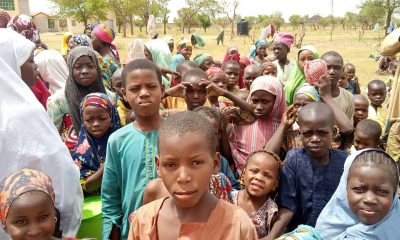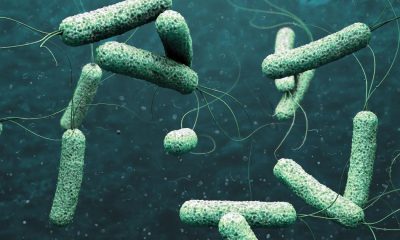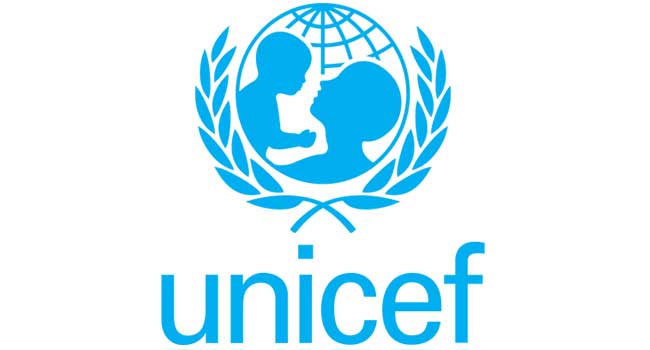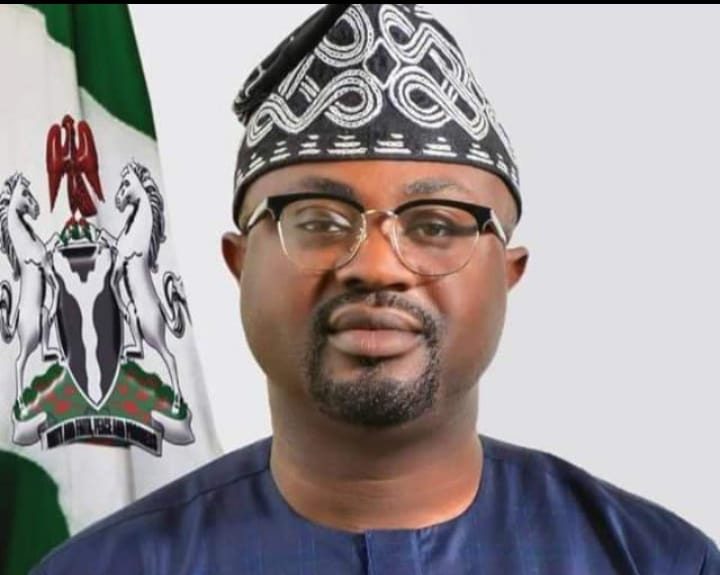General
3, 598 cholera deaths in 2021 unacceptable says Nigerian Government
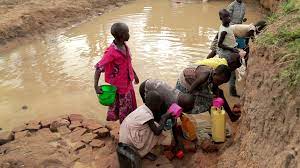
The Nigerian Federal Ministry of Water Resources on Tuesday called for strengthened coordination from all partners to prevent cholera deaths, as over 3,598 deaths were recorded in 2021 in the country.
The data received from the Cholera Situation Report for 2021 revealed that the age group of five to 14 years were the most affected, with Bauchi, Jigawa, Zamfara and the Kano States leading.
This was the thrust at the National Water, Sanitation and Hygiene (WASH) in Emergency Group Meeting in Abuja, with participation from line ministries and development partners.
Mr Emmanuel Awe, Director, Water Quality Control and Sanitation with the ministry, said it was worrisome that cholera deaths still occurred in many parts of the country.
He noted that there was no doubt that humanitarian assistance was of cardinal importance for victims of emergencies, with assistance in an organized and coordinated manner.
“In 2021, Nigeria reported cholera cases as of Dec. 6, 2021, was 107,911 with 3,598 deaths which exceeded the number of cases reported in 2020 of 1,858 cases and 95 deaths.
“These figures are not acceptable, the number of deaths from cholera was less than COVID-19, waterborne diseases are preventable, and all we need to do is to ensure that our people have access to clean and safe potable water at all times.
“Cases have been reported from 341 local government areas in 29 states including the conflicted states in the northeast and crisis-affected northwest region.
“These reports of a resurgence of cholera in states and the FCT is a worrisome public health crisis, especially coming amid the emergence of the highly infectious Omicron, showing the third wave of COVID-19 cases”.
Awe said improving access to WASH services could reduce illness and deaths, affect poverty reduction and socio-economic development, improve health, economy, life expectancy among others.
He said the meeting was an avenue to brainstorm on ways to see that cholera cases were brought to the barest minimum in 2022 through coordinated collaboration.
This, he noted, had already begun with the engagement of a national consultant who would assist the National WASH in Emergency Technical Group and upcoming training to contain cholera preparedness and management.
The Director, while thanking UNICEF for its role in leadership and support, said the renewed commitment of all stakeholders was needed.
Ms Jane Bevan, UNICEF Chief of WASH, said it was shocking that cholera cases were higher than COVID-19 in 2021, calling for renewed coordination from all key stakeholders.
“UNICEF is working very closely with the Ministries of Water Resources, Health and Environment to build coordination around cholera response because this is where we noticed some of the gaps.
“If we can build up the coordination in every state, particularly in those hit by cholera, we will have a better response for those still ongoing and any new outbreak as the rains come in later this year”.
Mr Oumar Doumbouya, UNICEF WASH Manager, said updating the National and States Cholera preparedness and response plans and costs were needed.
He said this would help as an advocacy tool to aid planning and budgetary allocations, adding that political will from all states and partners was critical. (NAN)
General
Customs generated N275.8m in Ogun in 2024 – Comptroller

Nigeria Customs Service (NCS), Ogun 1 Area Command, says it generated a total revenue of N275.8 million within the state in 2024.
The Comptroller of the command, Mr Mohammed Shuaibu, disclosed this during a news conference on Tuesday in Idiroko, Ogun.
Shuaibu said that the ‘huge revenue generation’ was made possible through the diligent efforts of the command’s officers and cooperation of traders.
He also said that the command was able to achieve the milestone through intelligence-driven operations and dedication of the officers.
“The revenue was actualised through the collection from baggage assessment, proceeds from auction sales of premium motor spirit (PMS) and vehicles,” he said.
Shuaibu listed the items seized to include: 16,712 bags of foreign parboiled rice, 139,881 litres of PMS, 940 rounds of live ammunition, 71 sacks of Cannabis Sativa and 3,253 parcels of same substance.
Others were: 586 bales of used clothes, 86 vehicles used for conveyance, 18 foreign used vehicles, 2,150 pieces of used pneumatic tyres, 760 pieces of donkey skins, 3,766 cartons of frozen poultry products and 85 bags of imported flour.
“These achievements are a testament to our efforts at combating smuggling activities, protecting the economy and safeguarding the well-being of the society,” he said.
Shuaibu commended the Comptroller-General of Customs, Mr Adewale Adeniyi, for his continuous support and for creating an enabling environment for the command to thrive.
He also lauded the officers and men of the command for their resilience, professionalism and dedication to duty, saying that these were instrumental to achieving the milestones.
General
NYSC seeks Osun transport system’s support for safety movement of corps members
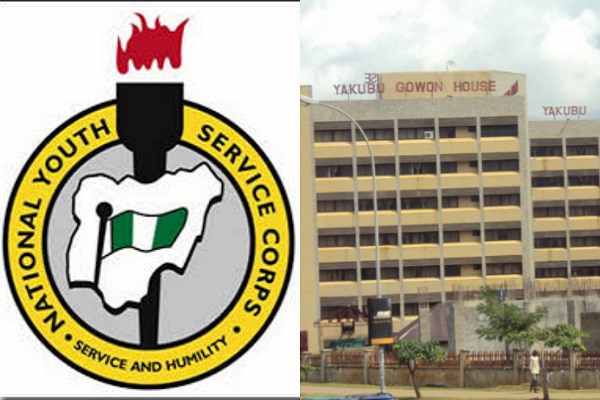
The National Youth Service Corps (NYSC) has solicited for the support of Osun State Transport Management System (OSTMS) to enable corps members deployed to the state to locate the orientation camp with ease.
Mrs Funmi Okundaye, NYSC’s Assistant Director, Information and Public Relations Unit in Osun, stated this in an interview with the News Agency of Nigeria (NAN) on Monday in Osogbo.
NAN reports that the 2024 Batch C, Stream II corps members deployed to the state will commence their three-week orientation between on Jan. 22.
According to her, the transportation management system plays key roles in the movement of corps members to the camp and their various places of deployment across the state after the compulsory three-week orientation.
“The OSTMS roles cannot be over-emphasised, looking at the assistance being rendered to some corps members who have never been to the state before,’’ she said.
Okundaye called for more assistance from the organisation to enable corps members locate the orientation camp with ease.
According to her, the swearing-in of the new corps members will hold on Jan. 24 at the state orientation camp ground, with notable stakeholders expected to be in attendance.
She called for the support of all stakeholders in making the exercise a successful one.
Okundaye assured that NYSC would not relent in achieving its set goals and objectives, especially for the corps members deployed in the state.
Education
FG harps on skills acquisition, education for women in detention
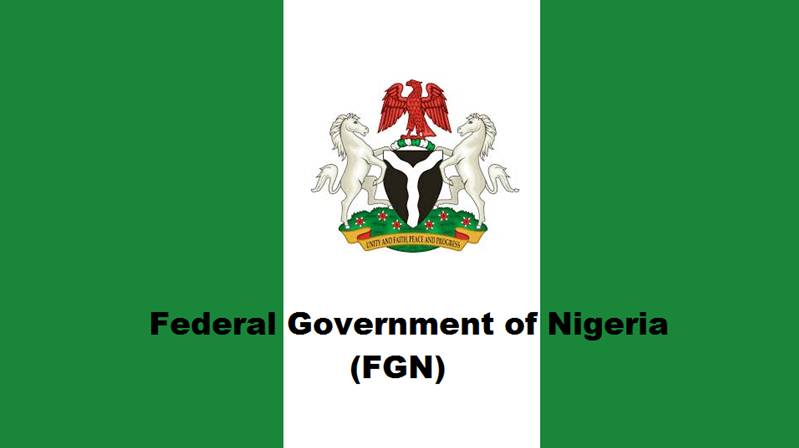
The Federal Government, on Tuesday, emphasised the critical role of skills acquisition and education in the rehabilitation of women in detention.
Minister of State for Education, Dr Suwaiba Ahmad, stated this at “the Women in Detention Workshop”, organised by Prison Rehabilitation and Welfare Action (PRAWA), in Abuja.
The News Agency of Nigeria (NAN) reports that the event was organised to mark PRAWA’s 30th anniversary.
Ahmad, who stressed the need for addressing the needs and rehabilitation of women in detention, said that such women must be equipped with adequate skills for self-reliance.
“This gathering reflects our shared resolve to ensure that even within the four walls of correctional facilities, women are afforded the dignity, support and opportunities necessary to rebuild their lives.
“Education, both formal and informal, is central to the transformative power of rehabilitation. It is not merely a tool for personal development but a lifeline that can open doors for reintegration and independence.
“For women in detention, education is a pathway to self-discovery, self-reliance and the restoration of hope. Beyond education, skills acquisition is a critical component of rehabilitation.
“Many women in detention face economic hardship and social exclusion which often perpetuate cycles of criminality,” she said.
Ahmad said that by equipping them with skills relevant to their communities and marketable in today’s economy, such women would be empowered to return to society as productive and self-reliant individuals.
Ahmad further said: “Rehabilitation and reintegration are not acts of charity; they are investments in humanity.
“By prioritising the education, skill acquisition and special needs of women in detention, we create a society that values second chance and upholds the dignity of every individual,’’ the minister said.
Earlier, the Executive Director of PRAWA, Dr Uju Agomoh, said the organisation, a CSO, was established in 1994 to promote security, justice and development in Africa.
She also said that the event was designed to tackle the broader issues of prison conditions as well as human rights violations and rehabilitation.
“One key initiative is training health workers and legal professionals on how to document and address torture cases, focusing on the internationally-recognised `Istanbul Protocol’.
“In addition, PRAWA is working closely with Nigerian universities, including University of Lagos, University of Abuja and several others.
“This is to introduce paralegal training programmes that will empower students to assist in legal and human rights efforts within the criminal justice system,” Agomoh said.
-

 Headlines4 years ago
Headlines4 years agoFacebook, Instagram Temporarily Allow Posts on Ukraine War Calling for Violence Against Invading Russians or Putin’s Death
-

 Headlines4 years ago
Headlines4 years agoNigeria, Other West African Countries Facing Worst Food Crisis in 10 Years, Aid Groups Say
-

 Foreign4 years ago
Foreign4 years agoNew York Consulate installs machines for 10-year passport
-

 News1 year ago
News1 year agoZero Trust Architecture in a Remote World: Securing the New Normal
-

 Entertainment3 years ago
Entertainment3 years agoPhyna emerges winner of Big Brother Naija Season 7
-

 Headlines2 years ago
Headlines2 years agoNigeria Customs modernisation project to check extortion of traders
-

 Entertainment2 years ago
Entertainment2 years agoMovie download platform, Netnaija, announces closure
-

 Economy2 years ago
Economy2 years agoWe generated N30.2 bn revenue in three months – Kano NCS Comptroller





